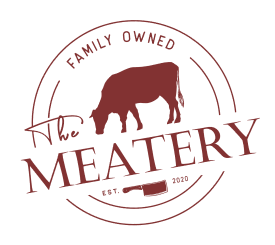The global obsession with Wagyu beef represents a fascinating intersection of culinary excellence, cultural heritage, and gastronomic luxury. This legendary meat, originating from Japan, has captured the imagination of food enthusiasts worldwide for several compelling reasons.
First and foremost, Wagyu beef offers an unparalleled eating experience. The meat's extraordinary tenderness and rich, buttery flavor profile create what many describe as a "melt-in-your-mouth" sensation that's simply impossible to replicate with ordinary beef. This unique characteristic has made Wagyu a sought-after delicacy in high-end restaurants and among discerning food lovers.
The exclusivity factor also plays a significant role in Wagyu's allure. True Japanese Wagyu comes from specific cattle breeds raised under strict regulations and traditional methods. This limited production, combined with growing global demand, has created a luxury market where premium cuts can command astronomical prices.
Social media has amplified the Wagyu phenomenon, with countless videos showcasing the meat's characteristic marbling and preparation techniques going viral. The visual appeal of raw Wagyu, with its distinctive snowflake-like fat patterns, makes it incredibly photogenic and shareable across platforms.
Marbling And Meat Quality Characteristics
The defining characteristic of Wagyu beef is its exceptional marbling, technically known as intramuscular fat. Unlike conventional beef, Wagyu's fat is distributed in an intricate web throughout the muscle tissue, creating a stunning visual pattern that resembles fine marble.
This marbling consists primarily of monounsaturated fats that have a lower melting point than typical beef fat. When cooked, these fat deposits literally melt into the meat, creating an extraordinarily tender texture and rich flavor profile. The Japanese grading system for Wagyu focuses heavily on this marbling pattern, with the highest grades featuring the most elaborate and uniform fat distribution.
Key quality characteristics of Wagyu include:
- Texture: Exceptionally tender with a silky mouthfeel
- Color: Bright red meat with white marbling
- Flavor: Rich, buttery taste with umami notes
- Juiciness: Superior moisture retention during cooking
Health Benefits And Nutrition
Contrary to what might be expected from such a marbled meat, Wagyu beef offers several notable health benefits. The fat composition in Wagyu is markedly different from that found in regular beef, containing higher levels of beneficial fatty acids.
Wagyu beef is rich in:
- Omega-3 and Omega-6 fatty acids
- Monounsaturated fats (similar to those found in olive oil)
- Conjugated linoleic acid (CLA)
- Essential amino acids
These compounds contribute to various health benefits, including potential anti-inflammatory properties and improved cardiovascular health when consumed as part of a balanced diet. The high concentration of monounsaturated fats may help to lower bad cholesterol levels while maintaining good cholesterol.
What do they feed wagyu cows?
The feeding regimen for Wagyu cattle is as meticulously planned as any elite athlete's diet. Traditional Japanese Wagyu farmers follow strict protocols that have been refined over generations to produce the highest quality beef possible.
A typical Wagyu feeding program includes:
- High-quality grass during early development
- Specially formulated grain mixes
- Rice straw
- Local beer or sake (in some regions)
The feeding schedule is carefully controlled, with cattle typically being fed smaller amounts more frequently throughout the day. This approach, combined with stress-free living conditions, helps develop the characteristic marbling that Wagyu is famous for.
Wagyu Vs. Other Beef Types
When compared to conventional beef varieties, Wagyu stands apart in several significant ways. The most obvious difference lies in the level and quality of marbling, but the distinctions go far beyond mere appearance.
Key differentiating factors include:
- Fat Content: Higher percentage of intramuscular fat
- Fat Quality: More monounsaturated fats than other beef
- Texture: Significantly more tender than regular beef
- Price Point: Substantially higher due to production methods and demand
While premium grades of Angus or other beef breeds can be excellent, they typically don't achieve the same level of marbling or tenderness characteristic of true Wagyu.
Why is Wagyu beef so prized?
The exceptional status of Wagyu beef in the culinary world stems from a perfect storm of factors that make it truly unique. Its rarity, production methods, and eating experience combine to create an unmatched luxury food item.
Key factors contributing to Wagyu's prestigious status include:
- Centuries of careful breeding and genetic selection
- Strict regulation and certification processes
- Limited production capacity
- Extraordinary culinary properties
- Cultural significance in Japanese cuisine
The dedication required to produce authentic Wagyu beef, combined with its unmistakable quality and increasing global demand, continues to cement its position as one of the world's most prized culinary treasures. This combination of factors explains why Wagyu maintains its status as the pinnacle of beef excellence and commands premium prices in the global market. Check out TheMeatery.com's Menu of every type of Wagyu on the Market!









